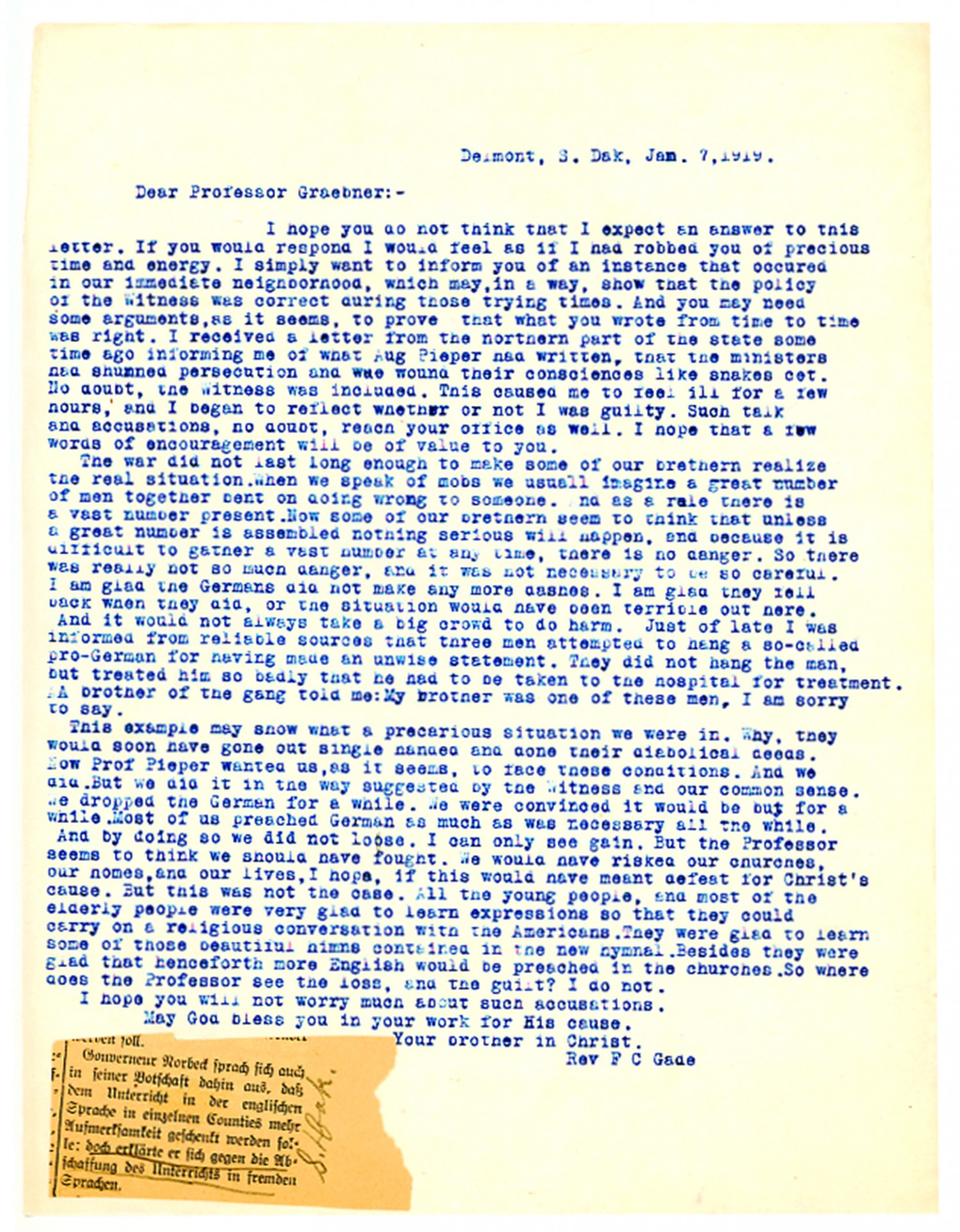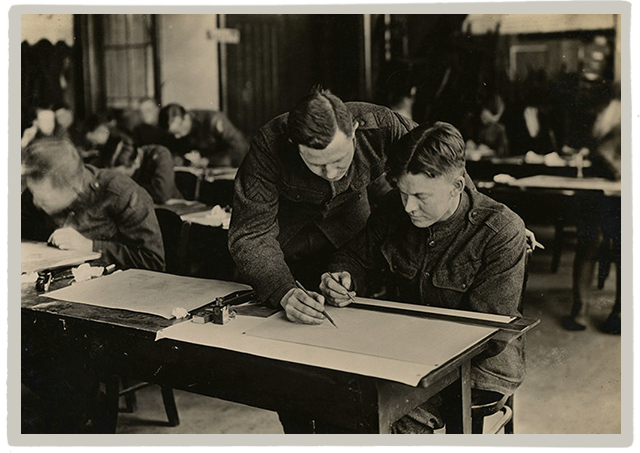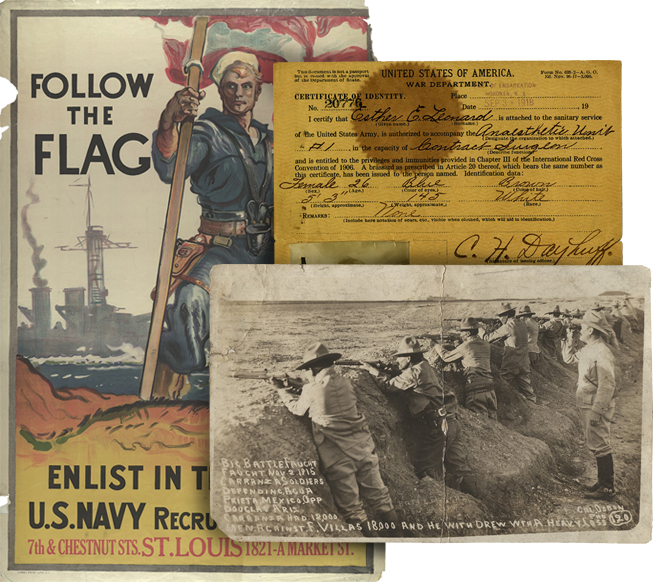F.C. Gade letter to Theodore Graebner - January 7, 1919

Transcript
Delmont, [South Dakota January] 7, 1919. Dear Professor Graebner:- I hope you do not think that I expect an answer to this letter. If you would respond I would feel as if I had robbed you of precious time and energy. I simply want to inform you of an instance that occured in our immediate neighborhood, which may, in a way, show that the policy of the Witness was correct during those trying times. And you may need some arguments, as it seems, to prove that what you wrote from time to time was right. I received a letter from the northern part of the state some time ago informing me of what Aug Pieper had written, that the ministers has shunned persecution and wae wound their consciences like snakes cet. No doubt, the Witness was included. This caused me to feel ill for a few hours, and I began to reflect whether or not I was guilty. Such talk and accusations, no doubt, reach your office as well. I hope that a few words of encouragement will be of value to you. The war did not last long enough to make some of our brethren realize the real situation. When we speak of mobs we usuall imagine a great number of men together bent on doing wrong to someone. And as a rule there is a vast number present. Now some of our brethren seem to think that unless a great number is assembled nothing serious will happen, and because it is difficult to gather a vast number at any time, there is no danger. So there was really not so much danger, and it was not necessary to be so careful. I am glad the Germans did not make any more dashes. I am glad they fell back when they did, or the situation would have been terrible out here. And it would not always take a big crowd to do harm. Just of late I was informed from reliable sources that three men attempted to hang a so-called pro-German for having made an unwise statement. They did not hang the man, but treated him so badly that he had to be taken to the hospital for treatment. A brother of the gang told me: My brother was one of these men, I am sorry to say. This example may show what a precarious situation we were in. Why, they would soon have gone out single handed and done their diabolical deeds. Now Prof Pieper wanted us, as it seems, to face these conditions. And we did. But we did it in the way suggested by the Witness and our common sense. We dropped the German for a while. We were convinced it would be but for a while. Most of us preached German as much as was necessary all the while. And by doing so we did not loose. I can only see gain. But the Professor seems to think we should have fought. We would have risked our churches, our homes, and our lives, I hope, if this would have meant defeat for Christ
Details
| Title | F.C. Gade letter to Theodore Graebner - January 7, 1919 |
| Creator | Gade, F.C. |
| Source | Gade, F.C. Letter to Theodore Graebner. 07 January 1919. Graebner, Theodore Collection. Concordia Historical Institute, St. Louis, Missouri. |
| Description | Letter from Reverend F.C. Gade to Professor Theodore Graebner. Gade mentioned a recent attack on a pro-German man who was hospitalized after offending three men. Gade was seeking Graebner's advice on how to handle the situation. Following World War I, anti-German sentiments rose across the county. Several states passed legislation forbidding the teaching of German in both public and private schools. The Lutheran Church was divided by the conflict on conducting services and religious instruction in German. |
| Subject LCSH | German language; World War, 1914-1918--Public opinion |
| Subject Local | WWI; World War I |
| Contributing Institution | Concordia Historical Institute |
| Copy Request | Transmission or reproduction of items on these pages beyond that allowed by fair use requires the written permission of the Concordia Historical Institute: 314-505-7900 |
| Rights | The text and images contained in this collection are intended for research and educational use only. Duplication of any of these images for commercial use without express written consent is expressly prohibited. |
| Date Original | January 7, 2019 |
| Language | English |



